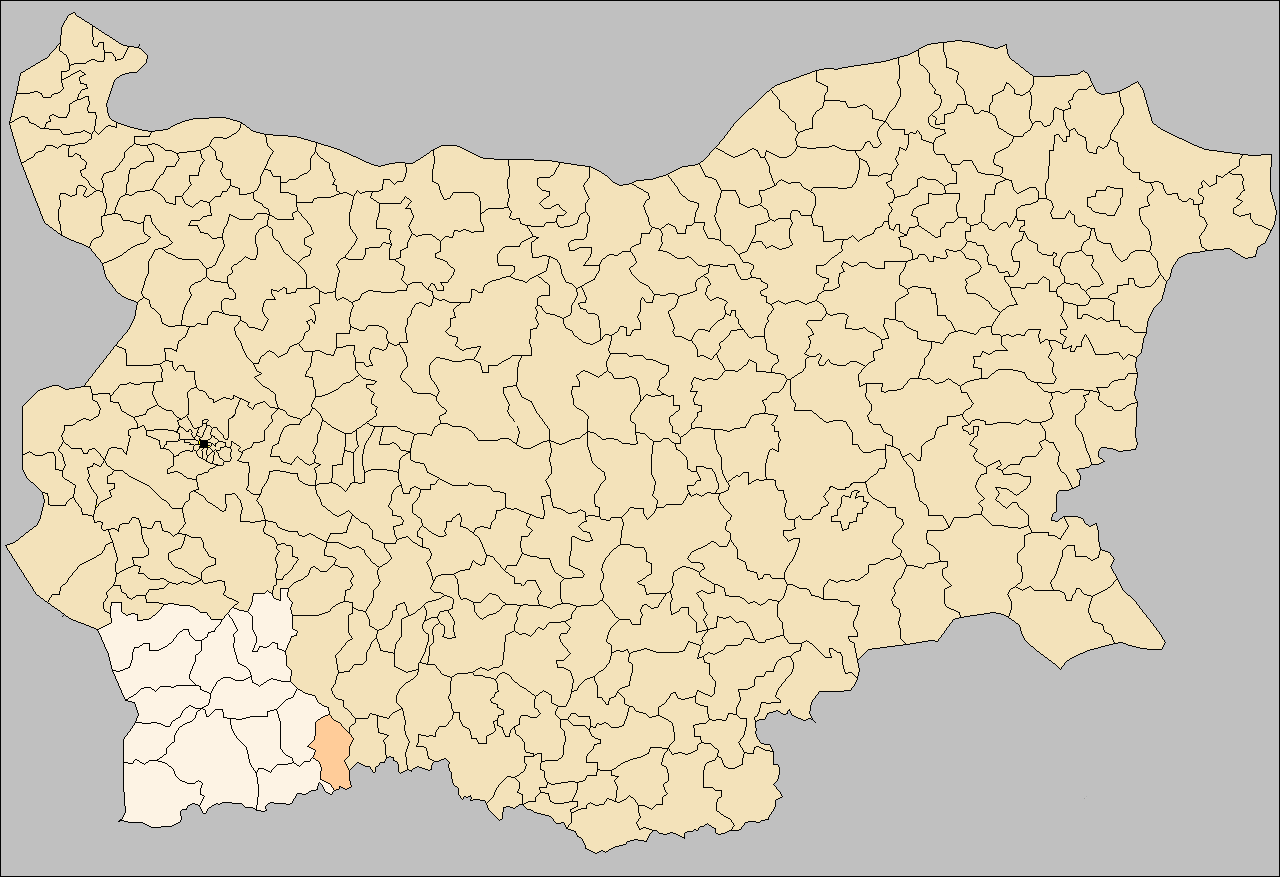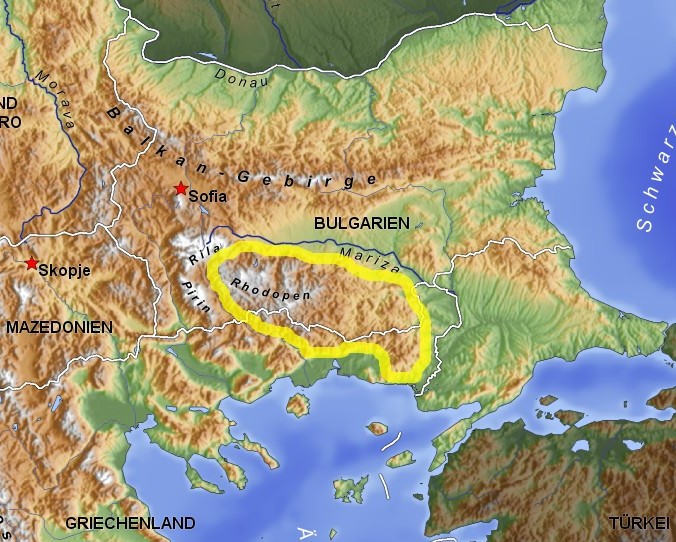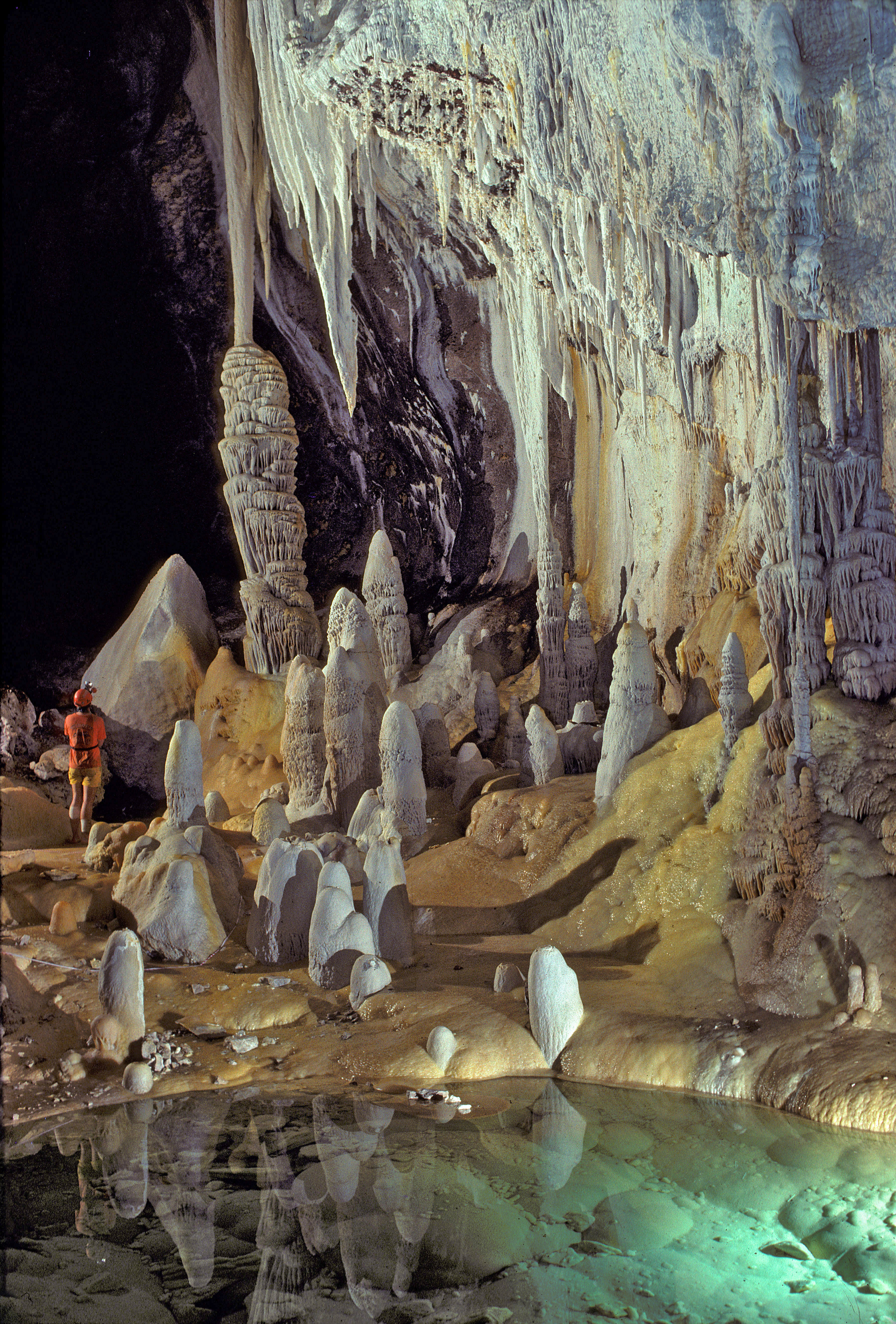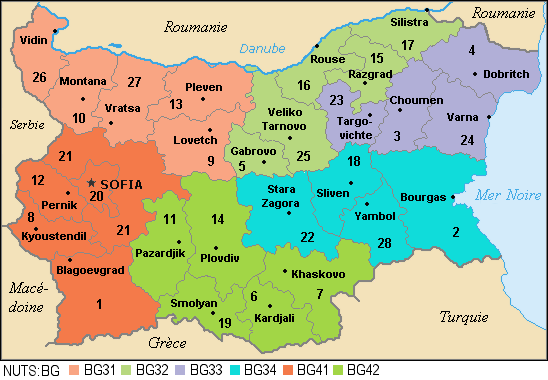|
Slashten
Slashten ( bg, Слащен) is a village in Southwestern Bulgaria. It is located in the Satovcha Municipality, Blagoevgrad Province. Geography The village of Slashten is located in the Western Rhodope Mountains. It belongs to the Chech region. History In 1873 Slashten (''Slaschtene'') had male population of 130 Pomaks and 50 houses. According to Vasil Kanchov, in 1900 Slashten was populated by 750 Bulgarian Muslims According to another statistic by Kanchov about the same time there were 90 houses in the village. Religions The population is Muslim Muslims ( ar, المسلمون, , ) are people who adhere to Islam, a monotheistic religion belonging to the Abrahamic tradition. They consider the Quran, the foundational religious text of Islam, to be the verbatim word of the God of Abrah ... and consists of Pomaks. Culture and Nature The cave ''Stapalkite'' (The Steps) is 64 meters long with 38 meters denivelation (vertical rise). References Vi ... [...More Info...] [...Related Items...] OR: [Wikipedia] [Google] [Baidu] |
Satovcha Municipality
Satovcha Municipality is a municipality in southwestern Bulgaria and is one of the municipalities in the Blagoevgrad Province. Geography It covers the Southwestern Rhodope Mountains. 14 settlemements belong to the municipality with a total of inhabitants (21.07.05) and a territory of km2. Administrative, industrial and cultural center of the municipality is the village of Satovcha. Population As of December 2018, there are 14,263 inhabitants living in the municipality of Satovcha, down from 18,265 inhabitants in 2000. The municipality of Satovcha has a Muslim majority (over 85% of the total population). Nearly all of them are Bulgarian Muslims (on the contrary, most Muslims in Bulgaria are ethnic Turks). Satovcha has a declining birth rate as young women are moving out of the villages. Religion According to the latest Bulgarian census of 2011, the religious composition, among those who answered the optional question on religious identification, was the following: Se ... [...More Info...] [...Related Items...] OR: [Wikipedia] [Google] [Baidu] |
Chech (region)
Chech ( bg, Чеч, el, Τσέτσι) or Chechko ( bg, Чечко) is a geographical and historical region of the Balkan peninsula in southeastern Europe in modern-day Bulgaria and Greece. It consists of about 60 settlements and was traditionally mostly Pomak with an Orthodox Greek and Bulgarian minorities. The Chech region is situated on the border of the much larger regions of Macedonia and Thrace. It covers the western Rhodope Mountains and the northern slopes of Falakro ( bg, Боздаг, ''Bozdag''). It is divided in two: ''Drama Chech'' and ''Nevrokopi Chech''. The first one and partially the second one is in Greece. According to Vasil Kanchov the eastern border of Chech is the Dospat River and the western one is the river of Dabnitsa. Thus the Chech comprises the municipalities: Satovcha, Dospat and the villages in the valleys of the Dospat River and Bistritsa river. The villages in the Greek Chech are part of Kato Nevrokopi municipality and Sidironero community. The ... [...More Info...] [...Related Items...] OR: [Wikipedia] [Google] [Baidu] |
Countries Of The World
The following is a list providing an overview of sovereign states around the world with information on their status and recognition of their sovereignty. The 206 listed states can be divided into three categories based on membership within the United Nations System: 193 member states of the United Nations, UN member states, 2 United Nations General Assembly observers#Present non-member observers, UN General Assembly non-member observer states, and 11 other states. The ''sovereignty dispute'' column indicates states having undisputed sovereignty (188 states, of which there are 187 UN member states and 1 UN General Assembly non-member observer state), states having disputed sovereignty (16 states, of which there are 6 UN member states, 1 UN General Assembly non-member observer state, and 9 de facto states), and states having a political status of the Cook Islands and Niue, special political status (2 states, both in associated state, free association with New Zealand). Compi ... [...More Info...] [...Related Items...] OR: [Wikipedia] [Google] [Baidu] |
Rhodope Mountains
The Rhodopes (; bg, Родопи, ; el, Ροδόπη, ''Rodopi''; tr, Rodoplar) are a mountain range in Southeastern Europe, and the largest by area in Bulgaria, with over 83% of its area in the southern part of the country and the remainder in Greece. Golyam Perelik is its highest peak at . The mountain range gives its name to the terrestrial ecoregion Rodope montane mixed forests that belongs in the temperate broadleaf and mixed forests biome and the Palearctic realm. The region is particularly notable for its karst areas with their deep river gorges, large caves and specific sculptured forms, such as the Trigrad Gorge. A significant part of Bulgaria's hydropower resources are located in the western areas of the range. There are a number of hydro-cascades and dams used for electricity production, irrigation, and as tourist destinations. In Greece, there are also the hydroelectric power plants of Thisavros and Platanovrysi. The Rhodopes have a rich cultural heritage including a ... [...More Info...] [...Related Items...] OR: [Wikipedia] [Google] [Baidu] |
Cave
A cave or cavern is a natural void in the ground, specifically a space large enough for a human to enter. Caves often form by the weathering of rock and often extend deep underground. The word ''cave'' can refer to smaller openings such as sea caves, rock shelters, and grottos, that extend a relatively short distance into the rock and they are called ''exogene'' caves. Caves which extend further underground than the opening is wide are called ''endogene'' caves. Speleology is the science of exploration and study of all aspects of caves and the cave environment. Visiting or exploring caves for recreation may be called ''caving'', ''potholing'', or ''spelunking''. Formation types The formation and development of caves is known as ''speleogenesis''; it can occur over the course of millions of years. Caves can range widely in size, and are formed by various geological processes. These may involve a combination of chemical processes, erosion by water, tectonic forces, microorgani ... [...More Info...] [...Related Items...] OR: [Wikipedia] [Google] [Baidu] |
Muslim
Muslims ( ar, المسلمون, , ) are people who adhere to Islam, a monotheistic religion belonging to the Abrahamic tradition. They consider the Quran, the foundational religious text of Islam, to be the verbatim word of the God of Abraham (or '' Allah'') as it was revealed to Muhammad, the main Islamic prophet. The majority of Muslims also follow the teachings and practices of Muhammad ('' sunnah'') as recorded in traditional accounts (''hadith''). With an estimated population of almost 1.9 billion followers as of 2020 year estimation, Muslims comprise more than 24.9% of the world's total population. In descending order, the percentage of people who identify as Muslims on each continental landmass stands at: 45% of Africa, 25% of Asia and Oceania (collectively), 6% of Europe, and 1% of the Americas. Additionally, in subdivided geographical regions, the figure stands at: 91% of the Middle East–North Africa, 90% of Central Asia, 65% of the Caucasus, 42% of Southeast As ... [...More Info...] [...Related Items...] OR: [Wikipedia] [Google] [Baidu] |
Vasil Kanchov
Vasil Kanchov ( bg, Васил Кънчов, Vasil Kanchov) (26 July 1862 – 6 February 1902) was a Bulgarian geographer, ethnographer and politician. Biography Vasil Kanchov was born in Vratsa. Upon graduating from High school in Lom, Bulgaria, he entered the University of Harkov, then in Russia. During the Serbo-Bulgarian War 1885 he suspended his education and took part in the war. Later, he went on to pursue studies at universities in Munich and Stuttgart, but in 1888 he interrupted his education again due to an illness. In the following years Kanchov was a Bulgarian teacher in Macedonia. He was a teacher in the Bulgarian Men's High School of Thessaloniki (1888–1891), a director of Bulgarian schools in Serres district (1891–1892), a headmaster of Bulgarian Men's High School of Thessaloniki (1892–1893), а chief school inspector of the Bulgarian schools in Macedonia (1894–1897). After 1898 Kanchov returned to Bulgaria and went into politics. In the beginnin ... [...More Info...] [...Related Items...] OR: [Wikipedia] [Google] [Baidu] |
Pomaks
Pomaks ( bg, Помаци, Pomatsi; el, Πομάκοι, Pomáki; tr, Pomaklar) are Bulgarian-speaking Muslims inhabiting northwestern Turkey, Bulgaria and northeastern Greece. The c. 220,000 strong ethno-confessional minority in Bulgaria is recognized officially as Bulgarian Muslims by the government. The term has also been used as a wider designation, including also the Slavic Muslim populations of North Macedonia and Albania. Most Pomaks today live in Turkey where they have settled as muhacirs as a result of escaping previous ethnic cleansing in Bulgaria. Bulgaria recognizes their language as a Bulgarian dialect whereas in Greece and Turkey they self-declare their language as the Pomak language. The community in Greece is commonly fluent in Greek, and in Turkey, Turkish, while the communities in these two countries, especially in Turkey, are increasingly adopting Turkish as their first language as a result of education and family links with the Turkish people. They are ... [...More Info...] [...Related Items...] OR: [Wikipedia] [Google] [Baidu] |
Village
A village is a clustered human settlement or community, larger than a hamlet but smaller than a town (although the word is often used to describe both hamlets and smaller towns), with a population typically ranging from a few hundred to a few thousand. Though villages are often located in rural areas, the term urban village is also applied to certain urban neighborhoods. Villages are normally permanent, with fixed dwellings; however, transient villages can occur. Further, the dwellings of a village are fairly close to one another, not scattered broadly over the landscape, as a dispersed settlement. In the past, villages were a usual form of community for societies that practice subsistence agriculture, and also for some non-agricultural societies. In Great Britain, a hamlet earned the right to be called a village when it built a church. [...More Info...] [...Related Items...] OR: [Wikipedia] [Google] [Baidu] |
Bulgaria
Bulgaria (; bg, България, Bǎlgariya), officially the Republic of Bulgaria,, ) is a country in Southeast Europe. It is situated on the eastern flank of the Balkans, and is bordered by Romania to the north, Serbia and North Macedonia to the west, Greece and Turkey to the south, and the Black Sea to the east. Bulgaria covers a territory of , and is the sixteenth-largest country in Europe. Sofia is the nation's capital and largest city; other major cities are Plovdiv, Varna and Burgas. One of the earliest societies in the lands of modern-day Bulgaria was the Neolithic Karanovo culture, which dates back to 6,500 BC. In the 6th to 3rd century BC the region was a battleground for ancient Thracians, Persians, Celts and Macedonians; stability came when the Roman Empire conquered the region in AD 45. After the Roman state splintered, tribal invasions in the region resumed. Around the 6th century, these territories were settled by the early Slavs. The Bulgars, led by Asp ... [...More Info...] [...Related Items...] OR: [Wikipedia] [Google] [Baidu] |
Provinces Of Bulgaria
The provinces of Bulgaria ( bg, области на България, oblasti na Bǎlgarija) are the first-level administrative subdivisions of the country. Since 1999, Bulgaria has been divided into 28 provinces ( bg, области, links=no – ''oblasti;'' singular: – ''oblast''; also translated as "regions") which correspond approximately to the 28 districts (in bg, links=no, окръг – ''okrug, okrǎg'', plural: – ''okrǎzi''), that existed before 1987. The provinces are further subdivided into 265 municipalities (singular: – ''obshtina'', plural: – ''obshtini''). Sofia – the capital city of Bulgaria and the largest settlement in the country – is the administrative centre of both Sofia Province and Sofia City Province (Sofia-Grad (toponymy), grad). The capital is included (together with three other cities plus 34 villages) in Sofia Capital Municipality (over 90% of whose population lives in Sofia), which is the sole municipality comprising Sofia City ... [...More Info...] [...Related Items...] OR: [Wikipedia] [Google] [Baidu] |
Eastern European Summer Time
Eastern European Summer Time (EEST) is one of the names of the UTC+03:00 time zone, which is 3 hours ahead of Coordinated Universal Time. It is used as a summer daylight saving time in some European and Middle Eastern countries, which makes it the same as Arabia Standard Time, East Africa Time, and Moscow Time. During the winter periods, Eastern European Time ( UTC+02:00) is used. Since 1996, European Summer Time has been applied from the last Sunday in March to the last Sunday in October. Previously, the rules were not uniform across the European Union. Usage The following countries and territories use Eastern European Summer Time during the summer: * Belarus, Moscow Summer Time in years 1981–89, regular EEST from 1991-2011 * Bulgaria, regular EEST since 1979 * Cyprus, regular EEST since 1979 ( Northern Cyprus stopped using EEST in September 2016, but returned to EEST in March 2018) * Estonia, Moscow Summer Time in years 1981–88, regular EEST since 1989 * Finland, regu ... [...More Info...] [...Related Items...] OR: [Wikipedia] [Google] [Baidu] |







